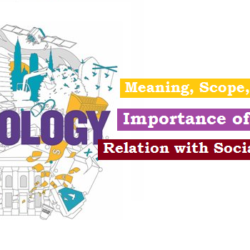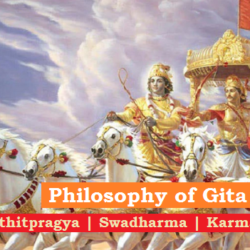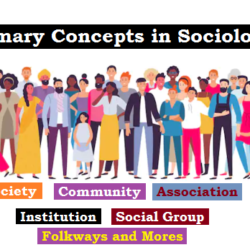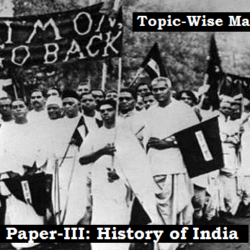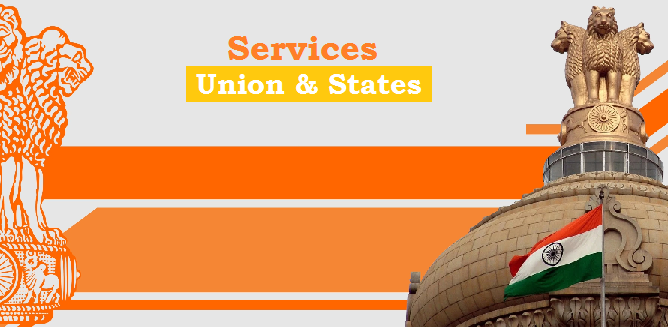
Public Services (Art 308- 314):
Constitution empowers the Parliament (States for State Services) to regulate the recruitment and conditions of service (including reasonable restrictions on the Fundamental Rights) (Art 309)
They hold office during the pleasure of the President (respective Governor for States) (Art 310) with safeguards (Art 311):
- No dismissal by an authority subordinate to the appointing authority
- No dismissal without giving a chance to defend
All India Services (Art 312)
- Parliament can create a new All India Services if Rajya Sabha passes a resolution for the necessity (with 2/3 majority)
- British time services like, the Indian Civil Services (ICS) was replaced by IAS and the Indian Police (IP) was replaced by IPS accordingly.
- In 1963, a provision was made to create 3 AIS- IFoS, Indian Medical and Health Services, and Indian Service of Engineers. However, only IFoS came into existence.
- The members of AIS are recruited and trained by the Centre but assigned to different States for work (State Cadres). They serve the Central Govt on deputation for a time period.
- Irrespective of their division into State Cadres, AIS forms a single service with common rights and status. Their salaries and pensions are borne by the respective States.
- They are controlled jointly by the Centre as well as the States. The immediate control lies with the States and the ultimate control with the Centre. Any disciplinary action can be taken only by the Centre.
Central Services
- Under exclusive jurisdiction of the Center.
- They are Central Group A, B, (Gazetted Officers) C, D (Clerical and Manual Work) services
- Example of Group A: Indian Audit and Account Service, Indian Foreign Service, Indian Postal Service, Indian Revenue Service, Railway Personnel Service
UPSC (Art 315- 323): 2016 (08)
Central recruitment agency (DoPT is personnel agency)
Composition: A chairman and other members by the President
Qualification: Not specified (50% members with experience of govt service for 10 years)
Tenure: 6 years or 65 years age
Removal: By
the President on the following grounds- 1. Insolvent 2. Paid employment 3.
Infirmity of mind 4. Misbehavior (After inquiry by SC)
Independence:
- Removal by President only
- Expenses from the Consolidated Fund of India
- Not
eligible for further govt employment (except in UPSC or SPSC)
# Chairman is not eligible for a second term.
Functions:
- Examination
- Assistance to States
- Consulted on matters of personnel management (appointment, disciplinary action- not binding to the govt # After emergence of CVC, who is also consulted, the role of UPSC in matters of disciplinary actions is affected
- Annual Report to the President (to be laid in the Parliament along with explanation of not acceptance by the Cabinet)
State PSC (Same Art 315- 323):
By Governors of respective States (Removal by the President only)
Tenure: 6 years or 62 years of age
All functions, responsibilities are same as that of UPSC in the jurisdiction of the State concerned.
SPSC is also consulted in matters of appointment of Judicial Services of the State with the HC (for posts lower than District Judge)
Joint State Public Service Commission:
- Constitution makes provision for JSPSC for two or more States by an act of Parliament. (So a statutory body only)
- It presents its reports to each concerned State Governors.

 Home
Home Syllabus
Syllabus Contact Us
Contact Us
